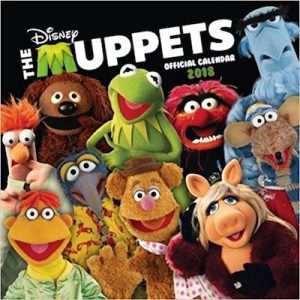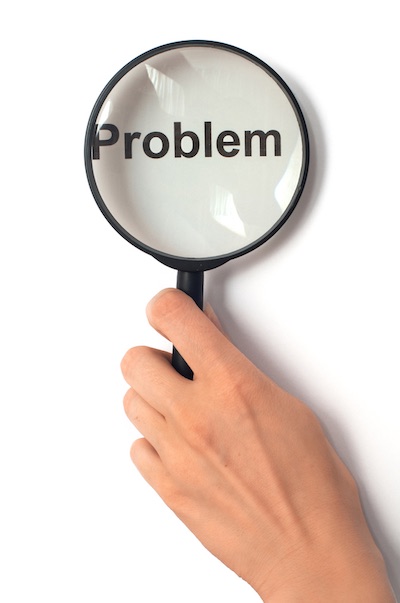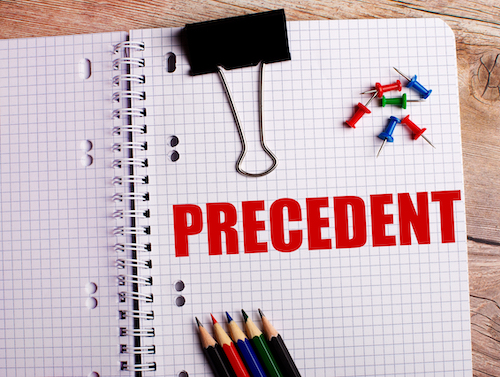EDITORIAL NOTE: On Thursday, February 8, 2018, the U.S. Chamber of Commerce held a reception to mark the release of the Global IP Index for 2018. Charles Rivkin, CEO of the Motion Picture Association of America (MPAA) spoke to those in attendance. What follow is his prepared remarks, published here with his permission.
________________

Good evening. Thank you, David, for that kind introduction and for the opportunity to join you for the launch of CREATE, the 2018 U.S. Chamber of Commerce International IP Index.
Tonight is my first time speaking at the Chamber as Chairman and CEO of the MPAA, but our two great organizations have a long, shared history.
Not only do our buildings occupy the same block, but did you know that the Chamber broke ground on this iconic headquarters the same year that the MPAA was founded?
I’m thrilled to know that our partnership will continue far into the future. The Chamber and GIPC’s work at the intersection of innovation and intellectual property is critical to the mission of the MPAA as well as the film and television industry I am proud to represent. Together, we can advance a vibrant creative economy and support creators of all kinds.
I love that word – “creators,” by the way. It carries so many positive emotions and personal connections.
Early in my career, I had the once-in-a-lifetime opportunity to work with one of our greatest creators, Jim Henson – the founder of Jim Henson Productions, and the creator of Kermit the Frog and the Muppets.
Jim used to say, “Media – if used properly – can be an enormous source of good in the world.”
And his Muppets certainly did prove that to be true. They made the world a better place.
They raised the level of preschool education in America and in more than 100 countries. They taught kids their ABCs – but also to respect others, to be more tolerant, and to dream big.
The Muppets became a beacon to children of all ages and backgrounds because Jim was able to turn his creativity into a thriving enterprise. We were able to license our characters, distribute them across the globe, and protect them from unauthorized use.
You see, the Muppets aren’t just our friends, they’re an intellectual property success story. And there are thousands more like it – showing IP as the backbone of our economy; stories that we need to tell far and wide.
We need to be the voice of creators everywhere. We need people to have an emotional connection to the idea of creating in every context and every conversation.
All of us in this room, as champions of IP-related industries, know that IP is the lifeblood of innovation, and that ideas and creativity propel society forward. Like media and the Muppets, IP is also a source for good in the world.
But that fact is not universally embraced. In the constant desire to find “what’s next,” I sometimes wonder if our society has allowed ideas to become commoditized.
Individual creations are still rightly lauded. We want the gizmo, the new movie, the rocket ship to Mars.
However, once the “big idea” is realized, we quickly forget where it came from and why it is valuable.
Some even selfishly try to weaken the very IP protections that made the idea possible in the first place.
Go back to the Muppets – would they have flourished without strong IP protections?
Well, Jim’s amazing imagination still would have created them…I don’t think you could ever contain the genius that is Kermit the Frog, Ms. Piggy and Gonzo…but would they have become universally known?
Would we have been able to sell the Jim Henson Company for nearly $1 billion back in 2000, a deal I was proud to be a part of? Would HBO have licensed five years of first-run Sesame Street episodes in 2015, more than 45 years after the show first premiered?
I believe the answer is no. Because the Muppets, like all creative works, are both emotionally and economically valuable. The reason the Henson assets were so valuable is that we were able to keep all of the rights intact and protected.
It is a fundamental truth that the ideas we develop, produce, and protect are what make us thrive as a society.
All around the world, individuals, small businesses, and global enterprises alike depend on IP to put food on tables, drive progress, and fuel economies.
Just look at the numbers. The story of IP as an engine of creation and economic growth is all around us.
IP-focused industries are responsible for more than half of U.S. exports. They generate almost 40 percent of our GDP and support more than 45 million jobs.
Every day, in every state across the nation, nearly one in three Americans go to work in jobs supported by IP-related industries.
These jobs span 81 different sectors, including America’s film and television industry, which today support 2.1 million jobs. It pays wages totaling $139 billion. And it contributes to a network of 400,000 – mostly small – businesses in all 50 states.
At a global level, the U.S. film and television industry registered a positive balance of trade in nearly every country in which it operates, with $16.5 billion in exports worldwide in 2016.
These economic achievements, and the inspiring, creative stories told in movies and TV shows every day, have touched billions of lives.
And yet, for all the benefits bestowed by film and television and the other 80 IP-intensive industries around the world, the value of IP is routinely diminished.
Ideas and innovations are stolen from their creators at an alarming rate. Some portray IP policies as anachronisms standing in the way of “new” and “better.” Governments – at the local, national, and global level – fail to fully protect our intellectual property.
We see this all too well in this year’s IP Index – an incredibly valuable tool for evaluating our global progress on these critical issues. The Index vigorously analyzes the IP protections by country, assigning scores to each nation based on its performance against key IP indicators such as copyright, patents, and enforcement mechanisms.
In my time at the State Department and as Ambassador to France, reports like these were vital in demonstrating to foreign governments the importance of strong IP regimes.
This year, on the Index’s copyright indicator, only 21 of the 50 economies sampled achieved more than a 3.5 rating out of the maximum possible score of 7.
Worse, nearly 45 percent of the countries analyzed failed to reach a score of 2.5
This has to change. My esteemed predecessor Jack Valenti once said, “There isn’t anything in the world that can’t be made better.”
We must better protect IP. We must ensure it is treated as the powerful tool of progress and creativity that it is. We must be better storytellers and advocates for IP.
This is my mission. This is our challenge.
I want all of us … the IP leaders in this room … the industries we represent … the creators who depend on us to build policy and business environments where their ideas can flourish … the audiences and consumers who are educated, inspired, and empowered by our works … to be a chorus for creativity.
To tell our elected officials that without strong IP laws and protections, innovation will be stifled. There will be no next rocket ship or next Kermit the Frog.
And if we lose those dreams, those creations, we lose our future.
But if we are successful … if we raise our voices … if tell our stories, then the IP Index will show country after country valuing IP as a foundation of a better future.
We will see businesses demanding that their creative works be protected in new and traditional markets alike.
We will see governments racing to create new incentives for IP-intensive industries.
We will see creators in all sectors bringing forth ideas, inventions, and stories we cannot even begin to imagine today.
We will see audiences and consumers thriving.
And we will secure a brighter future for the ideas, creators, and stories that will enrich our lives.
And we will all be better for it. Thank you.

![[IPWatchdog Logo]](https://ipwatchdog.com/wp-content/themes/IPWatchdog%20-%202023/assets/images/temp/logo-small@2x.png)

![[Advertisement]](https://ipwatchdog.com/wp-content/uploads/2024/05/LexisNexis-May-16-2024-sidebar-700x500-1.jpg)
![[Advertisement]](https://ipwatchdog.com/wp-content/uploads/2024/04/Patent-Litigation-Masters-2024-sidebar-last-chance-700x500-1.jpg)
![[Advertisement]](https://ipwatchdog.com/wp-content/uploads/2024/05/Patent-Portfolio-Management-2024-sidebar-super-early-bird-with-button-700x500-1.jpg)
![[Advertisement]](https://ipwatchdog.com/wp-content/uploads/2024/05/Artificial-Intelligence-2024-Getting-AI-Patents-Allowed-sidebar-700x500-1.jpeg)

![[Advertisement]](https://ipwatchdog.com/wp-content/uploads/2021/12/WEBINAR-336-x-280-px.png)
![[Advertisement]](https://ipwatchdog.com/wp-content/uploads/2021/12/2021-Patent-Practice-on-Demand-recorded-Feb-2021-336-x-280.jpg)
![[Advertisement]](https://ipwatchdog.com/wp-content/uploads/2021/12/Ad-4-The-Invent-Patent-System™.png)







Join the Discussion
7 comments so far.
LLDC
February 14, 2018 11:07 pmDemocrat appointee who was part of the Obama admin who mishandled US’s IP laws. Shaking my head. Time to sit down and disavow the past 8 years.
[[I like #3’s comment. Indeed, the Chamber of Commerce had their hands all over the AIA. Time to recuse your org.]]
Damien
February 12, 2018 08:42 pmPresumably because you were attempting to patent something that either wasnt novel or wasnt non-obvious. Im guessing like many people who complain about patent prosecution that you didnt hire an attorney?
Paul Morinville
February 12, 2018 05:10 pmDamien, Maybe you can explain why most of mine are still sitting there after 15 years. Perhaps they are still looking at the prior art and comparing it? Is that a reasonable amount of time? What is a reasonable amount of time?
Damien
February 12, 2018 05:05 pm@Paul Morinville “Patents take many years to be issued, but all other IP is either instantaneous or only takes a few months.”
Right…. a patent right is vastly more complex than any trademark or copyright. Trademarks (mostly) and copyrights protect words or marks… and the words or marks are easily discerned because they consist of just words.
Patents instead are not words. They are specifically tangible (or tangibly related) “machines”. But the currency of creating the right for a patent is created, like trademarks and copyrights, with words. Going from words to words in TM/Copyright is easy…. going from words to machines or machines to words… is a much much much more difficult, and therefore costly, task.
Damien
February 12, 2018 05:00 pmRemember in 2011 when the Chamber of Commerce broadly supported patent reform under the AIA cementing many of the same things they are condemning today? “The Chamber also expressed support for the bill’s “important legal reforms that would help reduce unnecessary litigation against American businesses and owners.”” -lol
https://judiciary.house.gov/_files/news/US%20Chamber%20of%20Commerce%20Patent%20Reform.html
Paul Morinville
February 12, 2018 03:09 pmIt’s not only copyright and trademark laws that are superior to patent laws. Trade secret laws are too. Trade secrets are protected civilly and criminally. Trade secret cases take a year to get to court. Patents cases are at minimum 2-3 times that long. Patents take many years to be issued, but all other IP is either instantaneous or only takes a few months.
Yes Disney is a great lobbyist, but Google is too. The problem with these laws is that they are driven by big business, not by normal every day Americans. Because Congress only hears from those with enough money to show up constantly on the Hill and contribute to their party and campaigns, they only get one side – the wrong side.
Steve L
February 12, 2018 02:02 pmIP laws have been very good to the Copyright/Trademark area, but not so much for Patent law. Artists and Inventors are both cited in the Constitution (Article 1, Section 8, Clause 8), but equal treatment between the two has not been ushered. Copyright’s are protected 70 plus years vs 20 for inventions and can be enforced with substantial copyright specific criminal penalties (nothing like that for inventions). The practical cost of obtaining copyright/trademark protections for both USPTO fees and Attorney costs are a fraction of that for Patents and the same could be said for defending them.
Patent law is struggling with an arcane system that does a very poor job of making the court system accessible to average inventors. When a patented product is blatantly knocked off (aka, “copied”), all bets are off that the inventor will ever get justice. Defending copyright/trademark is much easier and the paths are much clearer.
Micky Mouse has been the most successful political lobbyist ever! The comparisons between Copyright/Trademark vs Patent should cause us to ask, has the constitutional promise been fulfilled for Patent law? I say not, it is time for a paradigm shift in improving the inventors plight and we should pursue more and more constitutional arguments based on the fact that the modern system does not fulfill the constitutional promise for inventors while it does for authors and if it does for both then why such a stark comparison?